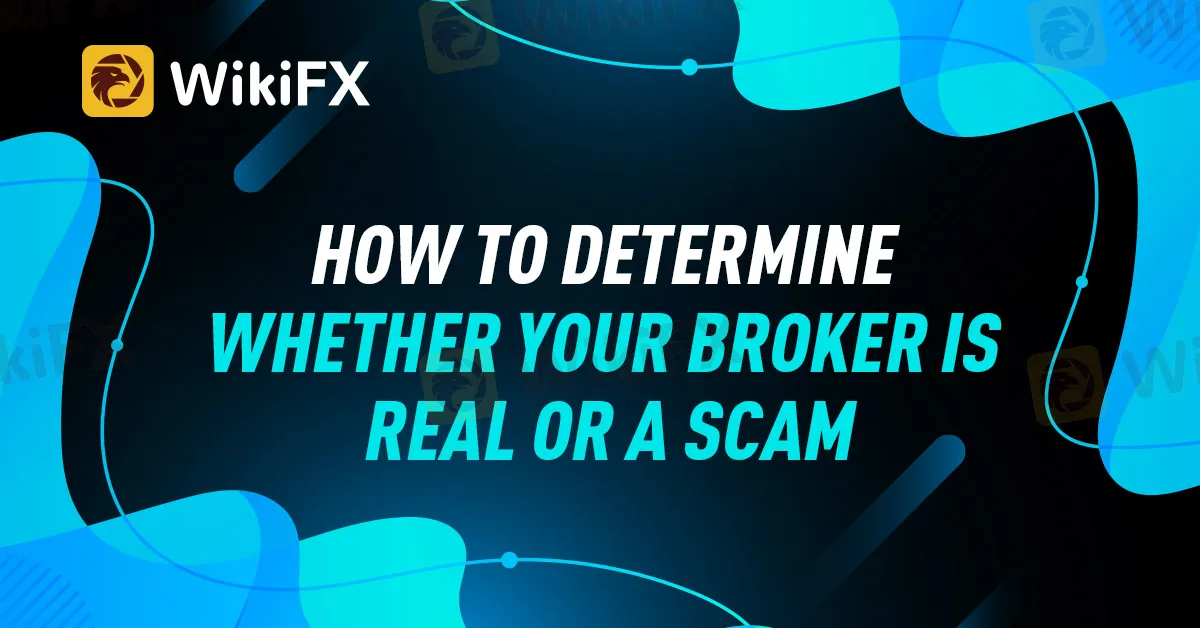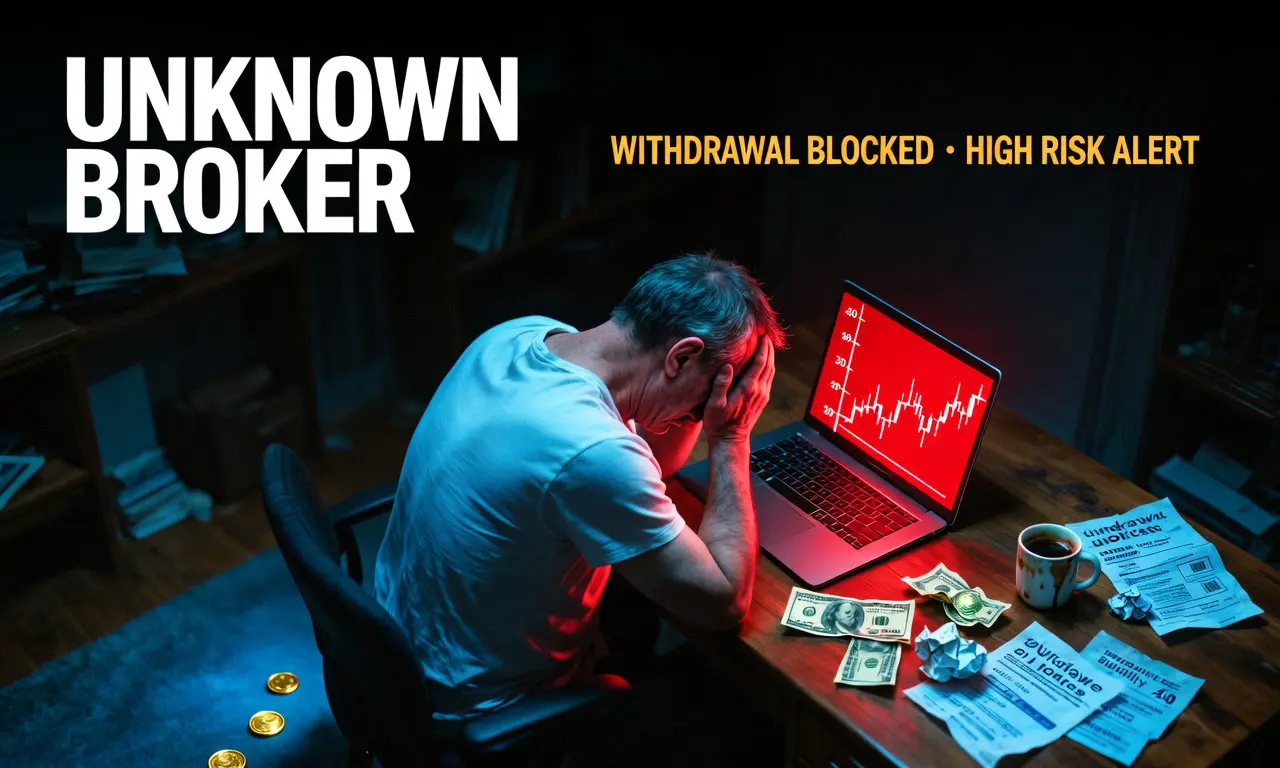Abstract:NEWS FROM MOSSEL BAY - Third-party risk is present in all financial market trading and investing activities. The safety of your delegated funds depends heavily on the broker you choose to trade or invest with.

NEWS FROM MOSSEL BAY - Third-party risk is present in all financial market trading and investing activities. The safety of your delegated funds depends heavily on the broker you choose to trade or invest with.
Trading and investing scams are at an all-time high in South Africa due to the extraordinary increase in the participation of retail traders and investors.
There will always be a third-party risk if a third party processes the trade transaction. However, if you properly investigate the broker's legitimacy, the third-party risk can be reduced to lower levels.
The best way to review your broker is by researching them on the WikiFX app. WikiFX allows traders to research and review the broker from a reliable source.
There are several methods you may determine whether the broker you've selected is trustworthy or not. Here is a list of important things you should think about before making any deposits with any brokerage or investment.
Verify Your Broker's Registration
In South Africa, almost all financial markets are controlled. It is not necessary, nevertheless, for your broker to be subject to regulation by the relevant authorities. As a result, it is the responsibility of traders and investors to understand the regulatory licenses that the broker holds.
The Johannesburg Stock Exchange requires members to provide stocks and their derivatives (JSE). Without JSE's approval, none of the brokers are able to properly provide stockbroking services in South Africa. In South Africa, the Financial Sector Conduct Authority (FSCA) supervises FX and CFD brokers and also keeps an eye on how the JSE and the Capital Markets are run.
The two main laws governing the capital markets in SA are JSE and FSCA. Depending on the services they perform, such as brokerage or financial services, certain individuals may additionally possess extra licenses. The South African Reserve Bank must provide licenses to banks and insurance companies (SARB).
In South Africa, brokers without a JSE or FSCA license are extremely likely to be frauds or fakes. South Africans should stay away from brokers who are regulated abroad but not locally.
A licensed broker must have an FSP number or license number specified in the documents or footnote of their website, according to Safe Forex Brokers South Africa. On the websites of financial regulators, these figures may be cross-checked for accuracy. False brokers frequently employ fabricated paperwork or fake FSP numbers.
For instance, you may check a broker's FSP number in the public search of the FSCA and view the items for which it has been approved.
Have a discussion and ask the broker questions.
You may get a sense of their service and quality by striking up a brief chat with the customer care representatives. Scammers or fake brokers typically forbid customers from getting in touch with them or asking specific questions about their regulation, trading costs, or withdrawals.
Before opening the account, engage the broker in a live chat or vocal conversation to ascertain their responsiveness and transparency. You may learn more about the broker thanks to this as well.
You can enquire with them on their rules, commissions, spreads, available leverage, deposits, withdrawals, etc. A trustworthy and knowledgeable broker must respond to each question posed by the customer.
Cold, unsolicited contracts
Investors and traders shouldn't gamble with their hard-earned money on unauthorized advice.
If a broker contacts you frequently and requests deposits, this is a huge warning sign. Any broker that comes to you first or attempts to get you to make a deposit or start an account with them could not be reputable.
In the capital market, con artists frequently attempt to persuade traders and investors to become their victims. They may entice customers by making unrealistic returns, unreasonable risks, extravagant incentives, or other alluring claims.
Such unsolicited ads or recommendations should be avoided by traders and investors.

Review forums and online testimonials
Many significant and helpful facts about a broker may be found with just a quick web search.
Online forums frequently debate the services provided by the broker. It might outline user experience and frequent problems encountered by current clients.
Investors in South Africa can also look for expert and qualified reviews online. Although every aspect is well covered in the reviews, some reviews may be prejudiced.
Conduct research
Your financial selections can benefit substantially from a short time investment in study and education. One must conduct comprehensive online research to look for red and green signals before making a deposit or creating an account. A quick Google search might enable you to identify a fraud.
The regulating body can check to see if the broker has ever been the subject of documented complaints in the past. Press releases on complaints or advisories against brokers are publicly released by the FSCA, JSE, or any other relevant regulatory body.
Additionally, clients must verify the broker's ownership information and financial accounts. You can research a broker's experience, complaints against the firm or owners, and the length of time the company has been in operation. The ownership structure and audited financial accounts of reputable brokers may be seen online.
Genuine brokers make all of their licenses, financial accounts, paperwork, user agreements, and other information available. Cross-checking this information with sources from third parties and the regulator's website is required. Only until you are satisfied with your own study should you make a deposit.
WikiFX allows traders to view all of this information in one convenient and reliable place. They do their own research and provide and score for traders to use when they want to research their broker. WikiFX is helping to prevent scams and bad service in the forex industry. The app is available on Play Store and Istore.











